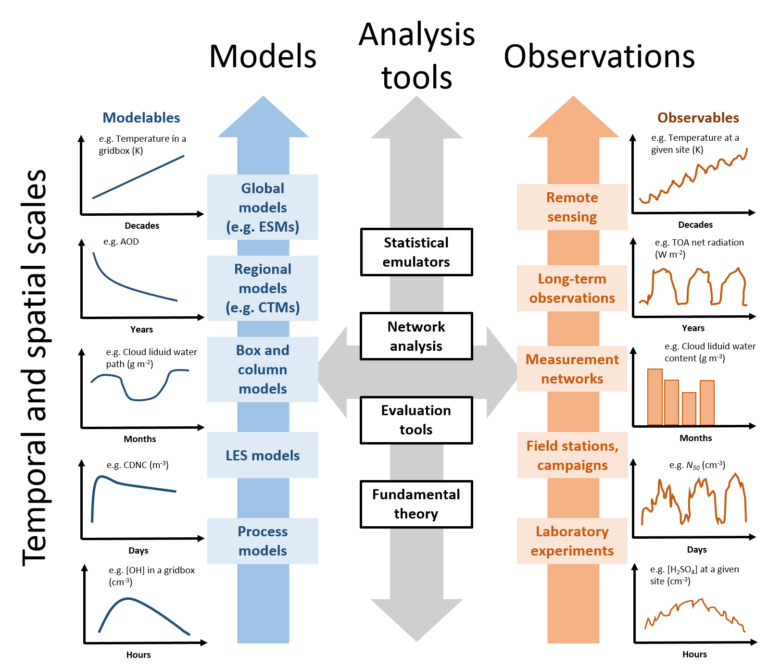The FORCeS project
To understand and reduce the long-standing uncertainty in anthropogenic aerosol radiative forcing
The ultimate aim of the FORCeS project is to understand and reduce the long-standing uncertainty in anthropogenic aerosol radiative forcing. This is crucial if we are to increase confidence in climate projections
The ultimate aim of the FORCeS project is to understand and reduce the long-standing uncertainty in anthropogenic aerosol radiative forcing. This is crucial if we are to increase confidence in climate projections.
FORCeS will identify key processes governing aerosol radiative forcing, as well as climate feedbacks related to aerosols and clouds, and improve the knowledge about these processes by bringing together leading European scientists
FORCeS reaches out to decision-makers and stakeholders and provides added-value information through workshops where climate science and climate policy experts meet to achieve maximum impact.
The challenge
Project objectives
- To understand and reduce the long-standing uncertainty in anthropogenic aerosol radiative forcing, which is crucial in order to increase confidence in climate projections.
- FORCeS will identify key processes governing aerosol radiative forcing, as well as climate feedbacks related to aerosols and clouds, and improve the knowledge about these processes by bringing together leading European scientists with trans-disciplinary expertise to
- exploit the wealth of in-situ and remote sensing data that have emerged during the recent decades;
- perform dedicated laboratory and field experiments;
- utilize a range of state-of-the-art computational models; and
- apply novel theoretical methods including machine learning techniques.
- The process analysis within FORCeS will be conducted with the overall aim of improving a set of leading European climate models, which all provide essential information to climate assessments such as the IPCC report.
- FORCeS will reach out to decision makers and stakeholders and provide added-value information through e.g. workshops where climate science and climate policy experts meet to achieve maximum impact.


